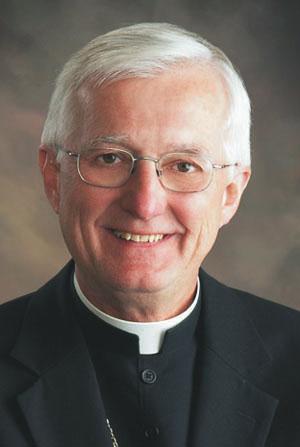Dear Brothers and Sisters in Christ,

This past week the editor of The Catholic Messenger received a letter asking me to comment on several issues — some related to the coming election and some more long term. I regularly receive mail that basically asks me to tell people how to vote or to complain that priests either are, or are not, talking about some particular political issue. I believe that parishioners well know the teaching of the Church on the moral issues of contraception, abortion, homosexuality, care for the least among us and other elements of our faith but may be seeking some justification for a particular political preference.
Scripture and the wealth of Church teaching over the years provide the basis of our faith despite the strident calls of our secular society to other views. I have encouraged all to read, to study and to pray over the guidance from the United States Conference of Catholic Bishops (www.usccb.org) and the Iowa Catholic Conference (www.iowacatholicconference. org). These reflect my views and those of the bishops of Iowa and the United States.
As Catholics we should be guided more by our moral convictions than by attachment to a particular political party or interest group. There are elements of both party platforms that conscientious Catholics can support and others that conscientious Catholics cannot. Neither party has a monopoly on consistency with our faith; as a Church, we do not support either political party or individual candidates. Our participation should help transform parties and not let party affiliation transform us in such a way we neglect or deny fundamental truths.
Some of the issues I see are:
• Abortion and other threats to life and dignity
• Efforts to force Catholic ministries to violate their consciences or stop serving those in need
• Efforts to redefine marriage and undermine marriage as between one man and one woman and an institution essential to the common good
• An economic crisis which has devastated lives and livelihoods and the duty to respond in ways that protect the poor and future generations
• The failure to repair a broken immigration system in ways that respect the law, human rights, the dignity of immigrants and refugees, families and the common good
• Wars, terror and violence which raise serious moral questions about the human and moral costs of force.
Being a faithful citizen is about more than an election choice. It is about being continually involved in the political process. It is legislation, not pre-election statements, which actually govern. Subsequent to the election the real work begins, and it is crucial that you as faith-filled people remain involved with our elected officials on all levels.
Discernment in the voting process is never easy. But being a Catholic Christian is not easy either. Our faith compels us to pick up the cross, to pray for God’s guidance and to strive to do his will to the best of our ability.
Sincerely in Christ,
Most Rev. Martin Amos
Bishop of Davenport








So good to hear from our Bishop:)!